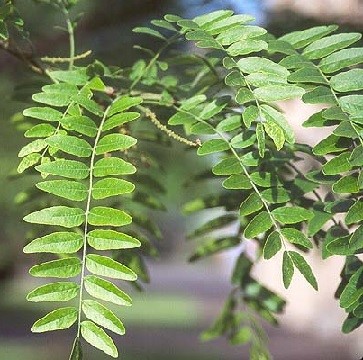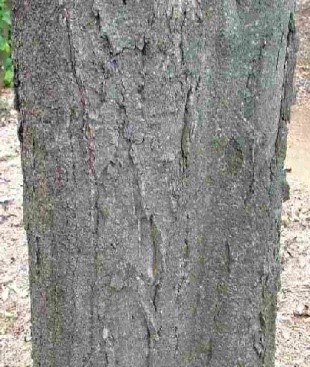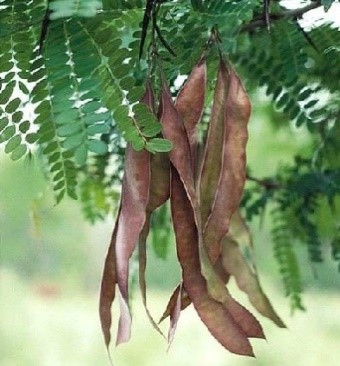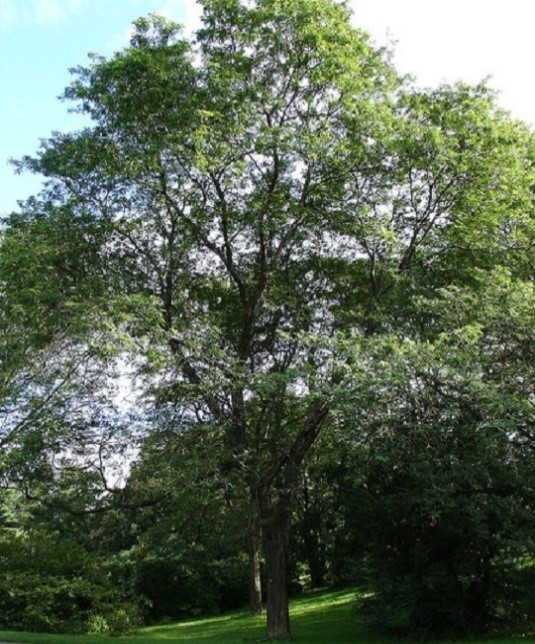Trees
Gleditsia triacanthos Linn.
Gleditsia triacanthos Linn.
Description :
A
large deciduous tree with a spreading crown. Heights of 25 m are not uncommon;
diameter will range from 0.6 to 1 m. Leaves are compound between 12.5 and 17.5
cm long. Twigs and branches are armed with thorns. The flowers are greenish and
occur as hanging bunches with the individual flowers arranged along the central
axis. Flowering usually occurs in May and June. The fruit is a large pod, 50 cm
in length and 3.7 cm in width. The pod is pulpy and encases the seed. Seed
ripens in September and October. It is reproduced both from seed and by
vegetative means. Under cold storage seed will remain viable for 2 years. Hot
water or acid treatment is need to overcome seed coat dormancy. MAI in the
central plains of the United States is recorded as 4.6 m3/yr over a
period of 18 to 35 years. Height growth is approximately 0.5 m/yr. coarse
grained, dark color and strong wood.
Distribution :
The
tree is native to the United States of America, but has been successfully
planted in Africa, Australia, New Zealand, South America, Pakistan and other
countries of the world. In Pakistan, it is found as a roadside tree and in
gardens, and in the plains of Punjab and KP. An intolerant, deep rooted tree
that is adapted to semi-arid. Warm to hot sub-tropical climates that are
characterized by winter monsoons. Under cultivation the tree can survive on
varied sites including both alkaline and acid soils. It grows best on deep
alluvial soils of limestone origin and in precipitation regimes of 500 to 1500
mm/yr. It is frost hardy, and occurs in a temperature range of -2 to 35°C.
Uses :
This tree is drought resistant with no observed disease or insect
problems. It is ideally suited for planting on eroded sites if it’s protected
from grazing. Since it is a good fodder tree it could be adapted to farm
forestry programs. Also used for posts and supports, furniture, shade,
apiculture, and fodder (pods are 29% sugar).



